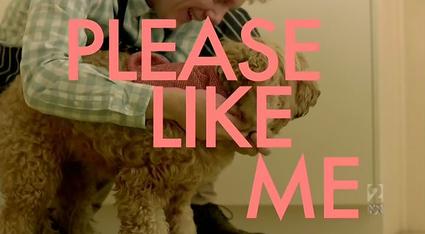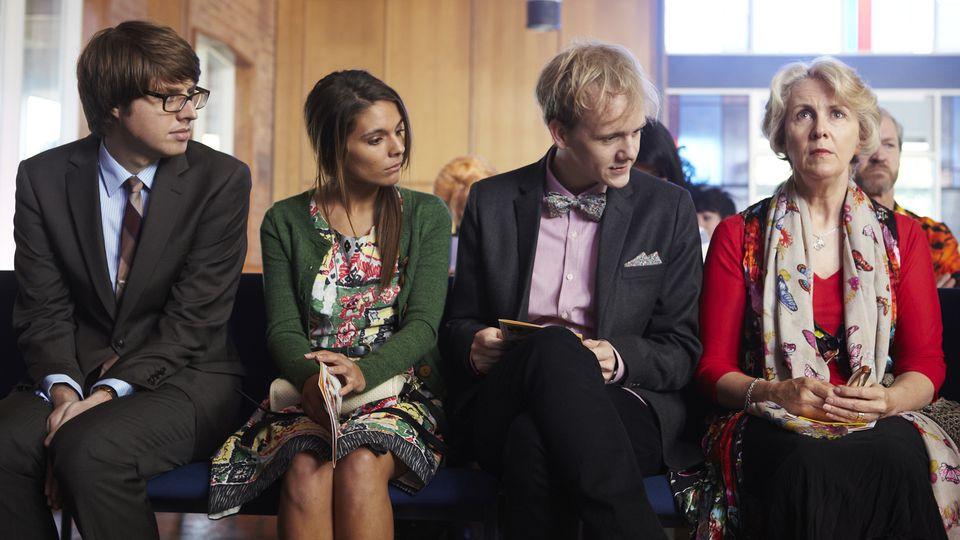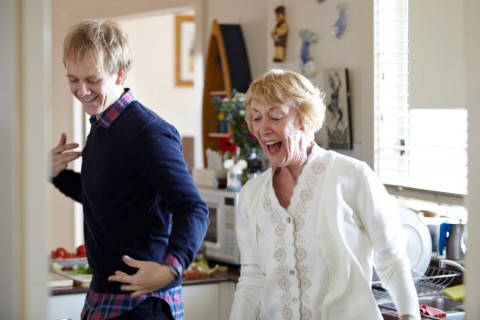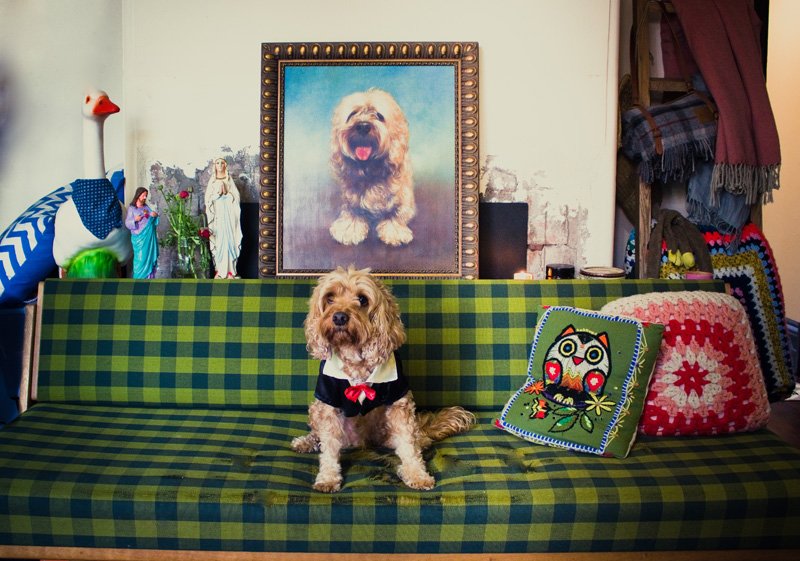There is something incredibly attractive about affirmation. Audiences are naturally attracted to art that reassures them and makes the world seem smaller than it actually is. Many television shows trade on that feeling of closeness. The ability to check in week to week with characters who ostensibly become friends and family to their audiences is something that is entirely unique to television. It’s the same reason why shows that refine the notion of “family,” and in turn its relationship with the audience, are lauded by critics. Through a wide variety of people and the lives they live, they show that the feeling of comfortable closeness can be achieved.
PLEASE LIKE ME, created by Australian comedian Josh Thomas, takes that notion of closeness and turns it on its head. In the world of PLEASE LIKE ME, the very things that push us apart, divide us, make us feel uncomfortable, and make us hate each other end up bringing us together in different and often more enriching ways. The show is semi-autobiographical in nature and follows writer/actor Josh Thomas as Josh, a 20 year-old university student living in Melbourne, Australia with his best friend and soon-to-be ex-girlfriend. The pilot opens with girlfriend Claire (Caitlin Stasey) breaking up with Josh because she believes he is gay (he is), before spiraling chaotically from there. Josh’s mother (Debra Lawrence) attempts suicide, his father (David Roberts) has begun an awkward and embarrassing mid-life crisis, and Josh’s best friend Tom (series co-writer Thomas Ward) might have gotten his terrible on-again-off-again girlfriend pregnant.
These would be seeds for tons of conflict in any other show, and to some extent they are, but what is perhaps most remarkable about PLEASE LIKE ME is how it handles these moments of hardship by treating them as normal and unavoidable parts of life. Josh’s mother’s attempted suicide results in Josh moving back in to watch over her. Breaking up with Claire provides Tom with a viable option to leave his girlfriend Niamh (Nikita Leigh-Prichard), and Josh’s dad’s increasingly poor decisions resulting from the sudden changes in his family’s life provide ample opportunity to develop his relationship with his son (and for Josh to come out to his dad). Much more closely resembling real life, these hardships are the fire in which stranger, more enriching relationships are formed. PLEASE LIKE ME creates a television family by tearing apart a traditional one and gluing the pieces back together upside down.
Of course church is addressed as well, because prejudice
It’s worth addressing the format of the show in its first season in comparison to other shows with a singular creative voice (LOUIE and, to some extent, GIRLS). Unlike LOUIE, PLEASE LIKE ME is not so much a space for Joshua Thomas to explore the form of filmmaking, but is rather a sandbox for him to cut his teeth in television writing while addressing issues of sexuality and mental illness. In that way, Season One feels very much like the first few seasons of GIRLS. The show is as much about the creator figuring out what a television show can and should be as it is the actual narrative of the show. And while the show carries the similar aimless “slice-of-life” quality of GIRLS, Thomas injects structure in interesting ways. Each episode of the season is titled after a food dish that one of the characters makes or consumes in that episode. The dishes typically play a key role in an episode’s plot, their creation emblematic of a character relationship on the show. Plus, they allow for a fun way for the show to incorporate dance montage (as each episode begins with a montage of a character making the dish over the show’s theme “I’ll Be Fine” by Clairy Browne & the Bangin’ Rackettes).
A crystallization of the show’s message and a catchy song in its own right!
Perhaps the most successful aspect of PLEASE LIKE ME (and what makes it worth your time) is its tone and message. Thomas builds his show on a tremendous amount of optimism and levity, and it shows throughout. From the theme song to Thomas’s own light and lilting speech, the show doesn’t take itself too seriously and fares far better in the process. Never an all out drama (though it was sold as one), the show achieves a “chuckle-out-loud” (COL, if you will) level of humor that doesn’t distract from its dramatic moments, and it feels true to the kinds of witty interactions a group of friends and family would have. It is perhaps cliche, but the general optimism of the show and its focus on what is a tumultuous, yet ultimately very positive coming-out experience, plants the show firmly in the “It Gets Better” camp. Beyond Josh’s experience as a gay man, the very nature of the show’s mismatched pairs and relationships formed from hardship demonstrate time and time again that, as bad as things get, they’ll at least get better—and if not better, at least dramatically different. Perhaps the most dramatic of changes is that of Josh’s Aunt Peg (played by the lovely Judi Farr), a woman who could be considered bigoted because of her faith, but who makes a dramatic turn on account of her nephew coming out. In a scene that dangerously approaches the edge of what is believable, Aunt Peg delivers a monologue in defense of her nephew’s sexuality that is honestly what sold me on the show.
How could you dislike this face? How could you not make her a series regular?
That kind of affirmation and reassurance is an incredibly compelling offer—one that is far too uncommon in an entertainment culture that is slowly rediscovering its sense of fun. PLEASE LIKE ME is successful for its levity and commitment to its message, but I’d be lying if I didn’t say that it speaks to me on a far more personal level. As someone who has struggled and is continuing to explore my own sexuality/inherent queerness, the notion that coming out can be okay, and that familial hardship, death, and romantic dissolution are road bumps that can be overcome is particularly reassuring to me. Maybe that has blinded me to this show’s quality, but I think if you open your heart and accept our new entertainment culture as one that still ruminates and dwells on the dark (THE SOPRANOS, BREAKING BAD) while learning from and celebrating the light, then I think you’ll find a lot to enjoy in PLEASE LIKE ME.
At least stay for the cute dog.
Verdict: Recommend
Season One and Two of PLEASE LIKE ME are available to watch on Hulu




